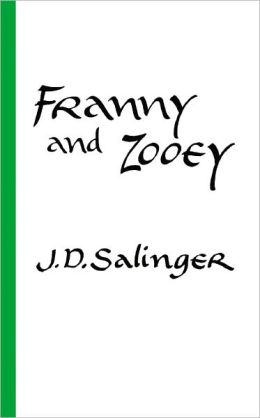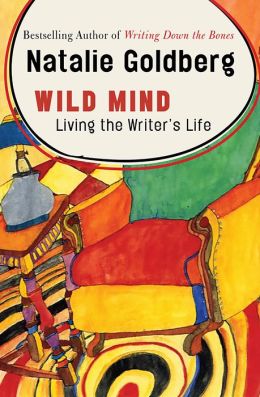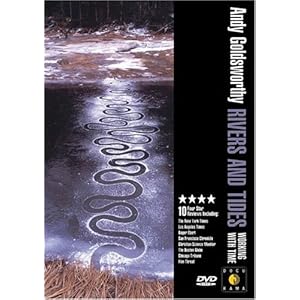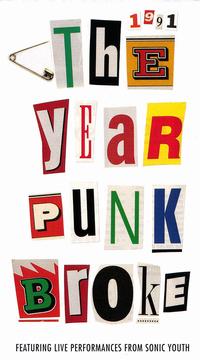By Molly Bradley
Read Part I of this series here
For whatever reason, my sister Khady took a strong liking to me. She was thirteen, small and skinny, and startlingly sassy---around me, anyway, and with the little ones who paid no attention either way. Around her older siblings she barely opened her mouth. That was the far more startling shift.
In the family room after breakfast the first morning, she took a handful of my hair and lifted it from my face.
“Je vais te tresser,” she said. She wanted to braid my hair.
“Non. . .non, ça va,” I said, dismissive, smiling. Thanks, but no thanks. Already I’d seen a few other girls from my program pass by my house, flanked and flaunted by their sisters, newly tressées. Their hair was tight against their scalps in what can only be called cornrows. The skin underneath strained with white and red.
“Mais si,” she insisted. “Il faut augmenter ta beauté!” We had to “augment” my beauty.
I was fairly certain that method of augmentation didn’t really do the trick for white girls.
But I was plopped down on a low, unsteady stool that sunk into the sand beneath the shade of a tree. The sun was just past its peak, and it was still hot as ever.
The little girls gathered around my ankles and stared. Khady set herself up behind me on her own stool. She pulled out a comb and began to move my hair this way and that, parting pieces, pinching them together.
Binta came out to watch with another girl. I thought at first she was another sister of mine, but I realized later that this girl just hung out in their compound all day long. At one point while we were watching TV, the ever-hanging girl---Hangout Girl, I called her in my head, because I never quite caught her name---made a snide comment in response to something that happened onscreen. Without missing a beat, without even turning her head, Binta said in French, “Don’t you have a home or family?”
Hangout Girl was still smirking, but no one laughed and no one apologized. No one kicked her out, either. Either Binta and Hangout Girl were friends, or they’d just given up on getting rid of her.
Binta and Hangout Girl ambled over and away continually throughout my braiding. Khady pulled my hair in a confident way that bordered on callous---every now and then I made a soft sound to remind her that there was a person under all that hair---and talked to me, hummed to me, berated my hair for being so uncooperative. It felt peculiarly motherly. Odd, for this thirteen-year-old girl to seem so in control. Around me, anyway. Despite my age, I was the baby of the family now.
An hour and a half into the process, a new shadow fell over me. When Khady allowed me to lift my head and my eyes I saw it was Mamadou.
“Very nice,” he said.
I smirked. “Thanks. You’re next.”
“No, not me,” he said. He raised a hand and patted his too-short hair that was already winding into stubby dreads. “Beauty is for the women. They are making you like them.” He walked away, slowly. Everything was a just a little slower in the sand.
I felt content, accepted. This wasn’t so bad. My homestay family seemed to like me---and even if they didn’t, they were working on making me something they’d like. Khady was on it.
She pulled abruptly on my hair, forcing my head up a little. “What did he say?” she asked.
For a second I was puzzled before I remembered no one else spoke English.
“He said he liked it,” I told her. I lifted a hand to my head to feel the progress. The right side was almost done, and almost numb. Khady was pulling the braids tight. It occurred to me, with a tinge of dread, that she was probably modeling my braids after her own, which were microscopically thin and innumerable.
“Could you make them a little thicker?” I asked, but she’d already yanked my head back down by means of my hair.
“Quoi?”
“Plus épais?” I pleaded.
She let out a little hmph and said no more. From somewhere outside the curtain of my remaining loose hair I heard Binta snicker.
***
The English was jarring the first night. It was still jarring the second. Khady would turn and ask me something in Wolof; I’d reply in broken Wolof and amend my meaning in French; the TV blared a mix of both; then suddenly in my right ear I’d hear a question in a language only my brain used now. It felt forward. Too familiar. Oddly intimate.
Still, with Wolof flung at me like a test of character from everyone else I encountered, the English was wholly welcome.
The regular soap was on. I was still a little fuzzy on specifics, but there was one duncelike man who kept procuring the anger of two other men. They argued in an endless stream of Wolof until finally they all broke grins and sat down for ataaya together. This was how the women would then find them and berate them for doing nothing but drinking ataaya all day. They had no idea.
As for the very well-dressed women, they sat in their living room and extensive conversations would take place at too fast a pace for me to understand. I stuck to paying attention to the clothes: the elaborate boubous, outfits, in bright colors and patterns; the jewelry---heavy gold, or intricate silver filigree---that made me feel shameful and shabby. I pulled at the thin grey yoga pants enveloping my thighs. When I’d come out in them this morning Khady had told me they were si si beau---so so beautiful---so many times I really couldn’t tell whether or not she was being sarcastic. But she herself wore more Westernized clothes, spaghetti-straps and jeans and rhinestone-studded sweaters.
Mamadou murmured something about the scene onscreen.
“What?”
“They’re cruel,” Mamadou said. “You see? Africans, we Africans, we are always cruel to each other.”
I looked to the screen. The two men in the show had hidden something from the other man, sending him into an overblown frenzy. To his face they were cold and unyielding; when the fool went off in search of his possession, the men laughed and held each other’s shoulders and slapped their knees.
“We do that in America, too,” I said. “TV is crazy in America.” I thought of action movies, crime shows, movies about high school---hell, I thought of the Marx brothers. “We’re always tripping people, or lying to them, or stealing from them, or shooting them . . .”
“Alright, but we are like this really. Not just on television,” Mamadou said.
“What do you mean?”
“We are cruel,” he said again. “Africans are bad, bad men.”
He said it simply, like it didn’t need explanation. I’d never heard anyone talk about where they came from that way. Talk about themselves that way.
“I don’t think that’s true,” I said. Immediately I wished I had phrased it differently---wished there were a better way to phrase it. I didn’t mean to challenge him, since he was African and I was not; I meant to emphasize the I: that in my experience, I hadn’t found that to be the case at all.
“Alright, alright, it is true,” he said. For a second I wondered who was arguing what, but then I realized he used his “alright”s as acknowledgment as well as dissent.
“Alright---you see,” he said, “an African man who is in the street---who is injured, maybe, or who does not have a home to be inside---no one will help that man. That is the best.”
I didn’t follow.
“Alright,” he says, “you see---in the best, at his best, another African man will leave him be. But usually another man will kick him, hurt him, or steal from him.”
“You really think everyone---every African---would do that?” I asked.
“I know this,” he said.
“But it’s the same in America,” I tried again. “No one looks at homeless people in the street. Everyone just walks by. And there are even some people who take advantage of them. Who hurt them.”
“Yes, alright, but American man, he will feel sorry,” Mamadou said. “He will say to himself, Oh, I wish I could help that man. Even if he cannot help that man he will feel sad. He will want to help. The African man, no. The African man only helps himself.”
This was bizarre. Not only had I never heard as much from anyone else---African or otherwise---I hadn’t seen evidence of it at all. Almost all I’d encountered was warmth, generosity, willingness to teach, et cetera, ad nauseum: all the stereotypes of West African hospitality that are stereotypical for a good reason. The worst anyone had done to me was laugh at my feeble attempts at communication in a language that was clumsy on my tongue.
Then again, I wasn’t African.
“How do you know,” I asked, again, “that any African would behave that way?”
“I know this,” he said.
We fell silent.
The men laughed. The dunce searched.
***
Before I went to bed that night, Mamadou asked how much longer I was staying in the village. I told him I had one more night before our group of students left for Saint Louis.
“That’s good,” he murmured, more to himself than to me. He nodded a little. I’d learned his nods meant he was making the sentence he’d say next.
People are unpredictable. It’s always gnawed at me, the way there is no way to ever get inside someone’s head. Mamadou wasn’t much more predictable than anyone else, but his nodding was one thing I could identify. It was a reassuring habit to be able to look for and interpret. It was small, but it was something. That, and there was the comfort of English. At the time, in that place, those seemed like two very concrete things to know about someone.
So after his nodding he said, “If you want I can take you to the fields tomorrow, before you go.”
I was eager to see the fields, to talk with him some more, and to participate in a helpful activity---but mostly I was eager to get out of the village. Aside from sawing fish into brow-raisingly sloppy pieces for meals, and failing to persuade any dirt out of the laundry I scrubbed with my sisters, I’d done very little but sit and watch soaps. (The one soap, really.) And I still didn’t understand the conversations in the living room. I felt like a child listening to adults talk about Things They’ll Understand When They’re Older.
He said he’d ask my host father to walk me there the following morning, when I was awake and ready. We said goodnight and I stepped out of the room.
“Mama!”
The older girls had followed me out: Khady, Binta, and the Hangout Girl. I turned and waited. Binta stood squarely before me. I thought maybe I was in trouble for something. Not that I had done much of anything to get in trouble for.
“Don’t talk to the Gambian,” Binta said.
There was no curve in her lips this time.
“Why not?” I asked.
“You’re not supposed to.”
I opened my mouth, paused. Asked again: “Why?”
Hangout Girl shifted her weight. Khady looked nervous. She was stiff except for her eyes moving between Binta and me.
“It’s not good,” Binta said. “It’s not good for you to talk to him.”
I had so many questions. Was it not good for me to talk to him as a tubaab? Was it just because I was new to the family? Was it because I was a woman? Was it because I was American---or, worse, considered somewhat French?
But I didn’t ask. I didn’t think she’d tell me. I didn’t think she knew. What I did think was that she’d been told to tell me not to talk to him. I thought this because, I saw suddenly, my host mother was standing just outside the family room, watching us. To my surprise, the look on her face resembled worry.
“I’m sorry,” I said. “But he’s nice.”
Khady and Hangout Girl shuffled their feet.
Finally Binta shrugged and broke eye contact. She murmured a goodnight, and the three shuffled off to their bedroom.
I looked to the family room. My host mother was already gone.

































 At night, the cathedral's tower jetted out in the black sky, and the rest of the sassi glimmered in shades of yellow and orange. Have you heard of the movie "The Passion", by Mel Gibson? It was shot here.
At night, the cathedral's tower jetted out in the black sky, and the rest of the sassi glimmered in shades of yellow and orange. Have you heard of the movie "The Passion", by Mel Gibson? It was shot here.